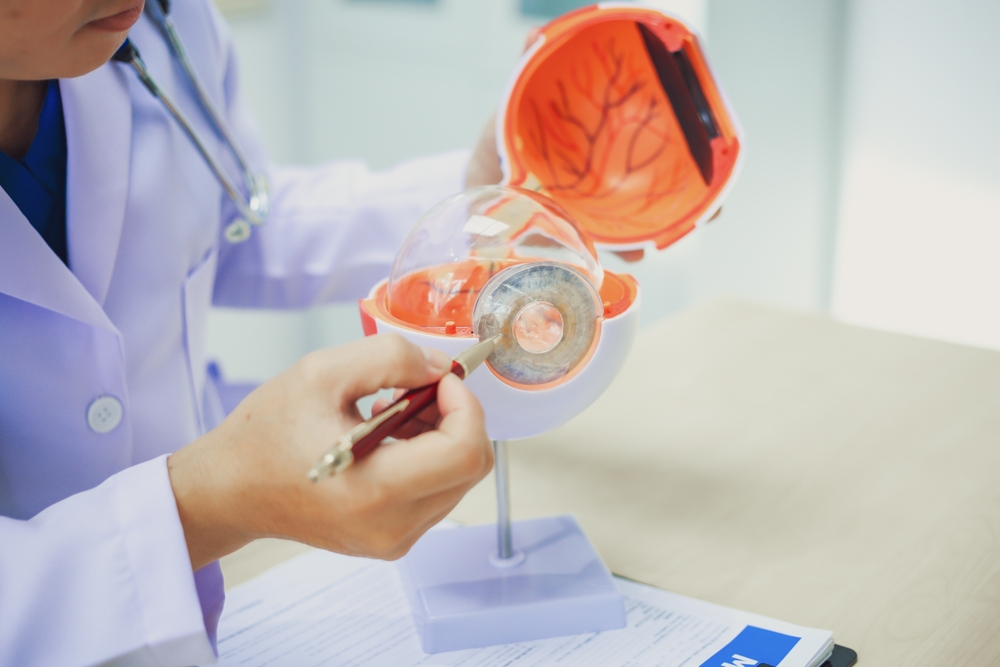What Is the Connection Between Diabetes and Eye Health?

Diabetes is a chronic condition that affects millions of people worldwide. While its impact on blood sugar levels is widely understood, many people are unaware of the significant connection between diabetes and eye health. Understanding how diabetes can influence your vision is crucial for preventing complications and maintaining long-term eye health.
How Diabetes Affects the Eyes
Diabetes can lead to high blood sugar levels, which in turn can damage various parts of the body, including the eyes. Over time, uncontrolled diabetes can harm the blood vessels in the retina, the light-sensitive layer at the back of the eye.
Diabetic retinopathy is one of the most common complications of diabetes. It occurs when high blood sugar levels damage the small blood vessels in the retina, causing them to swell, leak, or close off. In advanced stages, abnormal new blood vessels may grow, potentially leading to vision loss.
Diabetic Macular Edema (DME) is a specific complication of diabetic retinopathy. It involves swelling in the macula, the central part of the retina responsible for detailed vision. This swelling can blur vision and make daily tasks like reading or driving challenging.
People with diabetes are also more likely to develop cataracts at an earlier age. Cataracts cause the lens of the eye to become cloudy, leading to blurred or dimmed vision.
Lastly, diabetes doubles the risk of developing glaucoma, a condition characterized by increased pressure in the eye that can damage the optic nerve. If left untreated, glaucoma can result in vision loss or blindness.
Symptoms to Watch For
The early stages of diabetic eye diseases may not have noticeable symptoms, which is why routine eye exams are essential. However, as the condition progresses, you might experience:
Blurry vision
Floaters or spots in your vision
Difficulty seeing at night
Loss of vision in one or both eyes
If you notice any of these symptoms, it’s important to see an eye doctor immediately.
Preventing Diabetic Eye Problems
The good news is that many of the complications associated with diabetes and eye health are preventable with proper care. Here are some steps you can take to protect your vision:
Manage Your Blood Sugar, Blood Pressure, and Cholesterol: Keeping your blood sugar levels within the target range reduces the risk of diabetic retinopathy and other complications. Similarly, controlling blood pressure and cholesterol supports overall eye health.
Schedule Regular Eye Exams: Annual comprehensive dilated eye exams are crucial for detecting eye problems early. At Quality Eye Care, we use advanced diagnostic tools to monitor your eye health and catch issues before they worsen.
Quit Smoking: Smoking can exacerbate diabetes-related complications, including those affecting your eyes. Quitting smoking supports overall health and reduces the risk of eye disease.
Stay Physically Active: Exercise can help improve blood sugar control and support cardiovascular health, both of which contribute to healthier eyes.
How Quality Eye Care Can Help
Diabetes and eye health are closely linked, but with proper management and regular checkups, you can protect your vision. At Quality Eye Care, we’re committed to helping you maintain optimal eye health, especially if you’re managing diabetes. We provide comprehensive diabetic eye exams to monitor your vision and detect potential issues early. If you’re diagnosed with a diabetes-related eye condition, we’ll work closely with you to create a personalized treatment plan.
If you’re living with diabetes, schedule an eye exam with Quality Eye Care to stay proactive about your eye health. Contact our office in Jacksonville or Gainesville, Florida, by calling (904) 601-1300 to book an appointment today.







